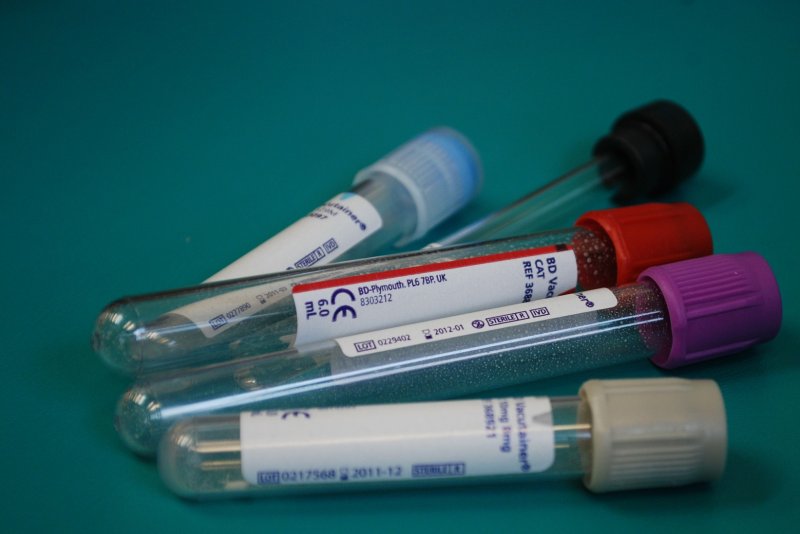New York begins collecting blood samples from select residents as part of COVID-19 research efforts. Photo by
kropekk_pl/Pixabay
April 21 (UPI) -- New York started collecting blood samples Monday from 3,000 randomly selected people for antibody testing as part of its response to the COVID-19 pandemic.
The results may provide a more accurate assessment of how many have been infected with the new coronavirus, but could also serve as a platform for research into potential treatments.
There is, however, some concern about the accuracy of the tests, and questions as to whether enough hospitals and clinics will have access to the materials -- and use them properly.
Richard Serino, distinguished visiting fellow at Harvard T.H. Chan School of Public Health's National Preparedness Leadership Initiative and a deputy minister at the Federal Emergency Management Agency under President Barack Obama, cautioned against thinking that these early antibody testing efforts will lead to a "re-opening" of the U.S. economy anytime soon in a conference call with reporters on Monday.
"Training doctors and nurses on how to use these tests and how to interpret the results is going to be key," he said. Whether or not public hospitals and testing labs -- many of which operate under severe budget constraints -- can afford the tests and the costs associated with processing samples "is also an issue," he added.
On Sunday, Governor Andrew Cuomo announced the state's plan to test a sample of New Yorkers for the presence of antibodies produced by people infected with COVID-19. Selected participants started receiving the test kits from the state's Department of Health on Monday.
"This will be the first true snapshot of exactly how many people were infected by COVID-19 (and) will help us to reopen and rebuild without jeopardizing what we've already accomplished," the governor said in a statement.
New York City has been the epicenter of the U.S. outbreak, with more than 250,000 confirmed cases of COVID-19, and more than 14,000 deaths, according to Johns Hopkins University.
The testing plan follows a similar model used in Germany, according to Cuomo. The nation, which has a population of more than 80 million -- roughly four times that of New York state -- used the same sample size for its antibody testing survey, he said.
Last week, President Donald Trump recommended that states use the antibody tests as they start relaxing social distancing measures implemented to combat the pandemic. However, public health experts have suggested more still needs to be learned about the tests -- and the virus -- before they can be relied upon as a gauge of immunity.
"Nobody is sure whether someone with antibodies is fully protected against having the disease or being exposed again," Dr. Mike Ryan, executive director of World Health Organization's emergencies program, told reporters last week. "Plus some of the tests have issues with sensitivity (and) they may give a false negative result."
In general, the immune system creates antibodies as it successfully fights infection. People with antibodies in their blood have a lower risk for re-infection -- although whether that holds true with the new coronavirus, SARS-CoV-2, remains to be seen.
As with any virus, researchers have developed a test for antibodies, using genetic information from the virus itself. The U.S. Food and Drug Administration has given fast-tract approval to several SARS-CoV-2 antibody tests in recent weeks, some of which products promise results in 15 minutes or less.
Accuracy could be an issue with the tests. Early evaluations of one platform published last week in Infection Ecology and Epidemiology found that it was less than 70 percent accurate at identifying one class of antibodies.
It has also been suggested that blood plasma donated by people who have recovered from COVID-19 could be used as a treatment for the virus for those with more serious illness. New York is already the site of a clinical trial of this approach.
However, guidance from the WHO, released Friday, indicated that testing positive for coronavirus antibodies does not necessarily mean a person has immunity.
Cuomo also told the media Monday that a group of hospitals from across the state will be submitting the results of their clinical trials of hydroxychloroquine -- an anti-malaria drug touted as a possible treatment for COVID-19 -- to federal health officials over the next day or so. Cuomo declined to offer details on the results of the trials.















